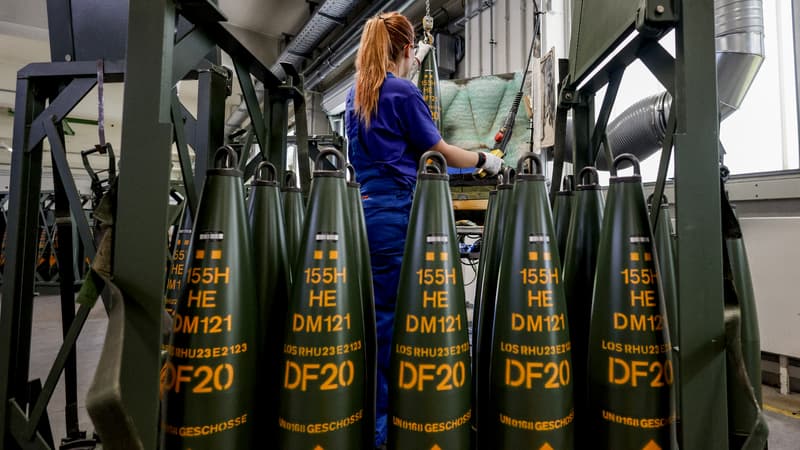German arms manufacturer Rheinmetall announced Saturday an agreement with a Ukrainian company to manufacture artillery ammunition in Ukraine, something the country urgently needs in the face of the Russian aggressor. The signing of the agreement took place in Munich, on the sidelines of the Security Conference, in the presence of Alexander Kamyshin, Ukrainian Minister of Strategic Industries, and the head of Rheinmetall, Armin Papperger.
Ultimately, the “Ukrainian Ammunition Competence Center” is expected to annually produce a “six-digit number” of 155mm caliber projectiles, including corresponding propellants, according to the statement. For security reasons, neither the name of the Ukrainian partner, nor the location of the future factory, nor the start date of production have been communicated.
Projects worth “several billion euros”
The joint venture, owned 51% by Rheinmetall and 49% by the Ukrainian partner, will make a “significant contribution to Ukraine’s defense capability and thus contribute to security in Europe,” stated Armin Papperger. In total, current projects with Ukraine are worth “several billion euros and their number increases almost every day,” according to the leader.
This is Rheinmetall’s second joint venture in Ukraine, after the one signed last October with the Ukrainian public company UDI, formerly Ukroboronprom, dedicated to the repair of military vehicles, the first step before manufacturing them directly on site. And last Monday the inauguration ceremony of a future ammunition factory took place within the main Rheinmetall defense industrial complex in Germany, in Unterlüss (north), in the presence of Chancellor Olaf Scholz.
This unit will produce 155 millimeter artillery ammunition from 2025, NATO standard artillery ammunition, used in numerous cannons and howitzers, progressively aiming for a capacity of 200,000 shells per year. Rheinmetall wants to produce at all its facilities in Europe up to 700,000 artillery shells a year until 2025, up from 400,000 or 500,000 this year. Before the Russian invasion of Ukraine, it only produced 70,000.
Source: BFM TV


